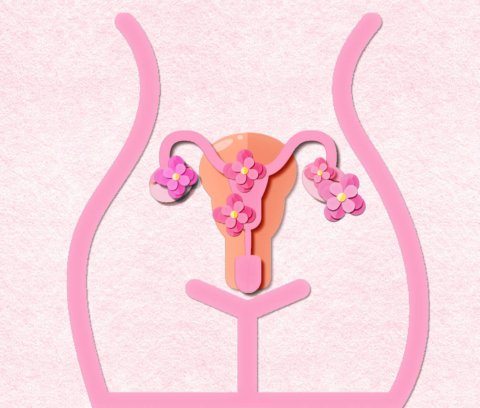If loud noises make you angry and you cry at the drop of a hat, you might be what psychologists call a highly sensitive person. GP Melissa Gilbert explains how to find out if you are one, and why it has a surprising upside.
In the fairy tale Goldilocks and the Three Bears, a little girl sets about finding a chair, some porridge and a bed that are all “just right”, which begs the question, was Goldilocks HSP – a highly sensitive person? The subtleties of comfort and taste are hugely important to highly sensitive people, because of the complex way they process sensory information.
The highly sensitive person was first described in the early 1990s by Dr Elaine Aron, who remains the leading expert on the subject. Research carried out by Elaine and her husband, Dr Arthur Aron, resulted in a book, The Highly Sensitive Person, which has become a bible for those who identify as HSP. It immediately became a bestseller when it was published in 1996 and continues to sell well today.
The sensitive brain
The nervous system of the highly sensitive person is essentially on high alert, so they feel and think about everything more intensely. Experiments using brain imaging have shown that an HSP brain is activated in more areas when processing sensory input than a non-HSP brain. The areas of the brain responsible for attention, decision-making and action-planning have more neural and biochemical activity as shown by subsequent brain mapping studies.
High sensitivity or sensory processing sensitivity is determined by genetics, is present in about 20 percent of the population, occurs equally across gender, and is also present in many other species.
If you consider this from an evolutionary perspective, there is potentially a survival advantage when a proportion of a species is constantly on the lookout for danger. However, if the entire population was on high alert, there might be a shortage of members ready to fend off the perceived threat.
Am I going crazy?
The downside of being HSP is that the constant hyperstimulation can quickly lead to feeling overwhelmed, and rising levels of anguish. Sensitive people can see all potential outcomes of a situation, including all the things that could go wrong, and this causes anxiety. So it’s helpful for HSPs to develop tools and practices that help them manage their sensitivity. Downtime is essential, as it allows them to process fully and be more creative. During this quiet time, it’s not uncommon for them to link things in unique ways from all the information they have taken in, coming up with new and exciting ideas.
High sensitivity is often mistaken for introversion, due to the significant amount of time spent quietly processing. However, 30 percent of HSPs are extroverts, and this poses some challenges for them. Extroverts are outgoing, spontaneous and often boisterous, but they are likely to overanalyse their extroverted behaviour if they are also highly sensitive. This overthinking can be painful, and can adversely affect self-esteem.
Takes one to know one
Psychologist Elaine Aron, whose thinking is so influential in this area, says she is HSP herself, and organises her life to accommodate that. Elaine identifies intuition as her main HSP strength and defines this “as knowing what you know without always knowing how you know it… HSPs typically have strong intuition because their depth of processing is fed by emotion.” On the other hand,she avoids conferences because of her sensitivity, preferring research and blog writing as ways of reaching the public.
Highly sensitive people are prone to beating themselves up for feeling out of place, which is why Elaine believes HSPs need to understand that their reactions are normal and see the positives. When they do this, they can see their high sensitivity less as a disability and more like a superpower.
HSP in the workplace
At work, high sensitivity can be a double-edged sword. It often manifests as stress, anxiety and intolerance to criticism, but in the right environment, sensitive people can flourish. A low stimulation workspace is essential for HSPs, which is why an open-plan office can be hard for them. To get the best from sensitive employees, managers need to deliver feedback in positive, encouraging ways. Elaine thinks if businesses paid more attention to HSPs and their needs, they would keep their best workers.
Highly sensitive people can excel as leaders. John Hughes, a writer and advisor to high-level business executives, as well as a self-identified HSP, says there are three abilities HSPs have that equip them for leadership.
The first of these is the ability to perceive, register and process subtleties. HSPs tend to take in the details that others miss: nuances of conversation, tone, body language and other non-verbal cues, allowing them to accurately take their team’s emotional pulse. This then helps them guide the team to be more productive.
Secondly, HSPs also prefer processing over action and speaking, which means they are more likely to listen and observe. Team members feel heard, and there is space to express their ideas without the prospect of being shut down or overshadowed by a leader eager to push their own agenda.
The third quality, resonance, is the ability to grasp and reflect back the “whole picture” to the team. John says: “Resonant leaders seem to say and do the right thing at just the right time. This isn’t luck or magic; it’s their innate ability to feel deeply, process richly, and patiently consider the right words and actions for the moment. HSPs do this naturally.”
The a-ha moment!
When people discover they are HSP, it is like an epiphany. Finally there is an explanation for all the things they thought were wrong with them. During her research, Elaine developed a self-test that people use to find out if they are HSP. The questions explore reactions to things like loud noises and strong smells and whether you have a rich, inner life.
The test can be a fun party game, and usually results in all the yet-to-be-identified HSPs leaning in excitedly, while the non-HSPs soon lose interest.It is, however, also useful to find out if your partner, children or employees are HSP, because subtle shifts in the way you interact with them may elevate your relationship to a new level.
For people who are HSP, finding out that they are can be life-changing. It is an opportunity to let themselves off the hook for all the overthinking and dramatic responses that set them apart from so-called “normal” people. HSPs can rewrite their personal histories to reflect their sensitivity in a positive light, realising that during all the times they thought they were losing the plot, they actually possessed a superpower they didn’t know they had.
The Arons’ website includes links to documentaries and new research, as well as the HSP self-test, hsperson.com.
You may be HSP if you…
- Are easily overwhelmed by bright lights, loud noises or strong smells.
- Get rattled if you have a lot to do in a short space of time.
- Frequently need to withdraw into a low stimulus environment to recover.
- Avoid horror movies or TV shows with a lot of violence.
- Deeply enjoy works of art, delicious food and beautiful music.
- Organise your life to avoid upsetting or overwhelming situations.
- Have a rich and complex inner life.








